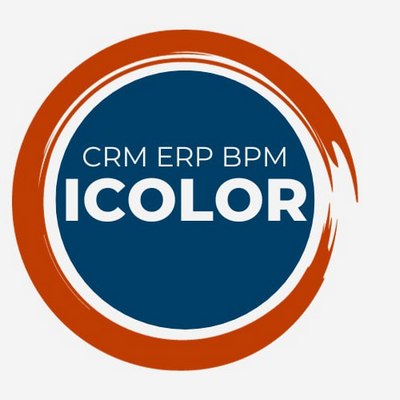New data charging mechanism
Dear OneBox users and partners,
Starting today, the calculation mechanism for the “data” tariff has changed in OneBox OS.
Previously it was like this:
- once a month (on a given billing date) we took all records (number of contacts, orders, files in megabytes) and received the amount of data,
- if it is less than 1000, then everything is free,
- if more than 1000, then an invoice was issued at the rate of $1.99 for every 1000 data, except for the first 1000,
- you have 10 days to pay the invoice, and the invoice can change on the fly if there is more data.
Now the tariff works like this:
- once a month (on a given billing date) we pay for each installed application, how much data it contains and at what tariff,
- we combine everything into one invoice, where each line is a separate application,
- invoice is available in your account + sent by email,
- the invoice is fixed and does not change.
Despite the fact that the rule “the first 1000 data is free” is clearly missing, in reality the data tariff has not become more expensive.
This happens because each application determines its own pricing, and almost all standard OneBox applications are charged as follows: round(amount of data / 1000) x $1.99.
For example, if you have 499 entries in the Contacts application, then the cost for the Contacts application will be 0.
If there are 500 records then round(500/1000) x $1.99 = $1.99
If there are 1499 records then round(1499/1000) x $1.99 = $1.99
If there are 1500 records then round(1499/1000) x $1.99 = $3.98
and so on.
This approach to charging allows partners to create their own applications with their own charging rules, where they can also charge data.
And users will have the opportunity to purchase only individual applications.
Thank you for your attention.
Original question is available on version: ru
Как со мной связаться - никак :)Starting today, the calculation mechanism for the “data” tariff has changed in OneBox OS.
Previously it was like this:
- once a month (on a given billing date) we took all records (number of contacts, orders, files in megabytes) and received the amount of data,
- if it is less than 1000, then everything is free,
- if more than 1000, then an invoice was issued at the rate of $1.99 for every 1000 data, except for the first 1000,
- you have 10 days to pay the invoice, and the invoice can change on the fly if there is more data.
Now the tariff works like this:
- once a month (on a given billing date) we pay for each installed application, how much data it contains and at what tariff,
- we combine everything into one invoice, where each line is a separate application,
- invoice is available in your account + sent by email,
- the invoice is fixed and does not change.
Despite the fact that the rule “the first 1000 data is free” is clearly missing, in reality the data tariff has not become more expensive.
This happens because each application determines its own pricing, and almost all standard OneBox applications are charged as follows: round(amount of data / 1000) x $1.99.
For example, if you have 499 entries in the Contacts application, then the cost for the Contacts application will be 0.
If there are 500 records then round(500/1000) x $1.99 = $1.99
If there are 1499 records then round(1499/1000) x $1.99 = $1.99
If there are 1500 records then round(1499/1000) x $1.99 = $3.98
and so on.
This approach to charging allows partners to create their own applications with their own charging rules, where they can also charge data.
And users will have the opportunity to purchase only individual applications.
Thank you for your attention.
Задавайте вопросы на форуме публично - и я отвечу.
Подробнее - https://1b.app/ru/user/11/
Answers:
Miroshnichenko Maxim wrote:
If there are 500 records then round(500/1000) x $1.99 = $1.90
If there are 1499 records then round(1499/1000) x $1.99 = $1.99
If there are 1500 records then round(1499/1000) x $1.99 = $3.98
500/1000=0.5
0.5*1.99=0.995 not 1.9
1499/1000=1.499
1.499*1.99=2.98 not 1.99
23.02.2024, 13:54
Вячеслав Легеза
Original comment available on version: ru
Miroshnichenko Maxim wrote:
This approach to pricing allows partners to create their own applications with their own pricing rules, where it is possible to charge data, including data.
and another question, whether I understood correctly
every application generates records
the system separately counts the number of such records for each application and calculates the amount
and then adds up these amounts
this total amount is the amount to be paid on the data tariff
23.02.2024, 13:55
Вячеслав Легеза
Original comment available on version: ua
Legeza Vyacheslav
iCOLOR OneBox (FOP LEGEZA VIACHESLAV VALERIANOVYCH) wrote:
Miroshnichenko Maxim wrote:
If 500 entries - then round(500/1000) x $1.99 = $1.90
If 1499 entries - then round(1499/1000) x $1.99 = $1.99
If 1500 entries - then round(1499/1000) x $1.99 = $3.98
500/1000 = 0.5
0.5 * 1.99 = 0.995 not 1.9
1499/1000 = 1.499
1.499 * 1.99 = 2.98 not 1.99
Yes, I almost figured it out
round is a function
it must round to the nearest odd value in parentheses
should look like this:
500/1000=0.5 to 1
1*1.99=1.99 not 1.9
1499/1000=1.499 to 1
1*1.99=1.99 Approx
1500/1000=1.5 to 2
2*1.99=3.98 Approx
At the same time, all values are summed up for all applications that have records.
23.02.2024, 19:40
Вячеслав Легеза
Original comment available on version: ua
Please join the conversation. If you have something to say - please write a comment. You will need a mobile phone and an SMS code for identification to enter.
Log in and comment

















